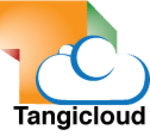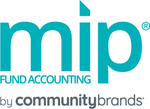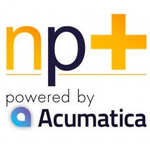Yes, most nonprofit accounting software is accessible from numerous devices and platforms. Users can now use the software from their desktop, laptop, tablet, or smartphone, giving them more flexibility and convenience. Furthermore, much nonprofit accounting software is cloud-based, which means it can be accessed from any internet-connected device running a supported web browser. This allows customers to quickly manage their finances no matter where they are.
List of Best Nonprofit Accounting Software
Tangicloud is a Fund Accounting software for nonprofits and governments. This comprehensive tool simplifies financial tasks like bank account management, currency handling, investment tracking, income and expense management. With features like report...Read More Tangicloud
Accounting Seed - the premier accounting solution on the Salesforce platform. Easily manage and streamline your financial processes with our comprehensive features, including reporting, general ledger preparation, and order and project management. Sa...Read More Accounting Seed
MIP Fund Accounting is a specialized financial management software designed for nonprofits. It efficiently tracks funds and ensures compliance, giving organizations more time and resources to focus on their mission. With its user-friendly interface,...Read More MIP Fund Accounting
Financial Edge NXT is a fund accounting solution for nonprofits. This comprehensive software streamlines financial management with its advanced features, including reporting, budgeting, and compliance tools. Say goodbye to tedious manual processes an...Read More Financial Edge NXT
NonProfitPlus is a ERP solution tailored for nonprofits. Powered by the Acumatica platform, it offers specialized tools for financial management, grant tracking, and program oversight to streamline operations and enhance productivity. Intuitive contr...Read More NonProfitPlus
Acceptiva for Nonprofits is a software that optimizes the process of collecting donations and payments for your nonprofit organization. Its branded forms can be personalized to align with your brand, and it offers convenient mobile access and the abi...Read More Acceptiva for Nonprofits
FUND E-Z is the leading nonprofit accounting software that simplifies fund management and enhances reporting. Our user-friendly solutions allow you to optimize your financial tasks so you can devote more time to your organizations goals. With FUND E-...Read More FUND E-Z
Sparkrock is a robust ERP software specifically designed for nonprofits, human services, and K-12 education sectors. Utilizing the advanced capabilities of Microsoft Dynamics 365, our solutions enable organizations to optimize financial management, s...Read More Sparkrock
ZipBooks Accounting solution for simplifying your financial tasks. Our innovative cloud-based platform offers time tracking, online invoicing, project management, and automated billing, making it easier than ever to stay organized and keep accurate r...Read More ZipBooks Accounting
AccountEdge Pro is a accounting solution for small businesses. Easily monitor your assets, liabilities, bank accounts, balance, income, and expenses with its advanced double entry system. Stay organized and on top of your financial game with the opti...Read More AccountEdge Pro
AccuFund is a bookkeeping software specifically designed for small businesses. It operates on a cloud-based platform and caters to the specific needs of nonprofit and government organizations. With its advanced features such as improved reporting, st...Read More AccuFund
Abila - a premier accounting solution built for efficient fund management and association administration. With its user-friendly interface and robust features, Abila is a top choice for organizations seeking talented individuals. Streamline your fina...Read More Abila
FastFund - is a solution designed specifically for nonprofits. Say goodbye to the hassle of managing accounting, payroll, and fundraising separately. Developed by industry experts, FastFund ensures easy compliance and transparency, allowing you to st...Read More FastFund
ShelbyNext Financials is a and reliable accounting software catered towards churches and non-profits. With its cloud-based platform, users can easily manage their finances through features such as general ledger, payroll, and accounts payable. Compli...Read More ShelbyNext Financials
Tigg, the innovative accounting software that has been co-designed by CAs and engineers to cater specifically to the needs of SMEs in Nepal. As a cloud-based solution, Tigg is approved by the IRD and holds an ISO 27001 certification, guaranteeing the...Read More Tigg
Learn More About Nonprofit Accounting Software
- What Is Nonprofit Accounting Software?
- What Are The Recent Trends In Nonprofit Accounting Software?
- Benefits Of Using Nonprofit Accounting Software
- Important Factors To Consider While Purchasing Nonprofit Accounting Software?
- What Are The Key Features To Look For In Nonprofit Accounting Software?
- Why Do Businesses Need Nonprofit Accounting Software?
- How Much Time Is Required To Implement Nonprofit Accounting Software?
- What Is The Level Of Customization Available In Nonprofit Accounting Software?
- Which Industries Can Benefit The Most From Nonprofit Accounting Software?
- Conclusion
What Is Nonprofit Accounting Software?
Nonprofit accounting software is a form of financial management software that is specifically tailored to nonprofit organizations. Its goal is to assist these organizations in precisely and efficiently managing and tracking their financial transactions, donations, grants, and other revenue streams. Unlike typical accounting software, nonprofit accounting software is designed to satisfy the specific demands and requirements of organizations, such as managing funds with donor restrictions, creating customized reports for grant applications, and adhering to nonprofit-specific regulations and legislation.
The program usually includes traditional accounting capabilities like accounts payable, receivable, general ledger, and budgeting, as well as extras like donor management, fundraising, and grant monitoring. Nonprofit accounting software also enables accurate spending monitoring and categorization, assuring transparency and accuracy in financial reporting.
Additionally, it provides automated bank reconciliations, customizable donation receipt templates, and connectivity with popular fundraising and donor management platforms. Nonprofit accounting software enables nonprofits to streamline their financial management operations, decrease manual errors, and gain a better picture of their financial health. This, in turn, helps them create trust with their funders and stakeholders, resulting in overall organizational success.
What Are The Recent Trends In Nonprofit Accounting Software?
In recent years, the nonprofit sector has seen an increase in its use of technology, with a particular emphasis on optimizing accounting operations. As a result, there have been a few trends in nonprofit accounting software that buyers should be aware of while weighing their alternatives. First, there has been a shift toward cloud-based nonprofit accounting software.
This enables firms to access their accounting information from any location with an internet connection, making it easier to operate remotely and collaborate with colleagues. Furthermore, cloud-based software generally includes automatic updates and backups, resulting in a more secure and efficient system. Another development in nonprofit accounting software is the closer integration of fundraising and accounting activities.
This enables companies to conveniently track and manage donations alongside financial data, providing a more complete picture of their operations. With the growing relevance of data analytics, many charity accounting software systems now include powerful reporting and analysis tools. This enables firms to monitor and understand their financial performance in real time, discover areas for improvement, and make data-driven choices.
In recent years, there has also been a push to improve the user experience of nonprofit accounting software. This offers customized dashboards, user-friendly interfaces, and the ability to automate common processes, allowing firms to manage their finances without substantial accounting knowledge. Finally, as cybersecurity dangers have increased, charity accounting software has added more security measures.
These can include data encryption, two-factor authentication, and access controls, which help to prevent unwanted access to sensitive financial data. Overall, as technology advances, nonprofit accounting software improves in sophistication, usability, and security. Buyers can consider these current trends when comparing software solutions to discover the greatest fit for their organization's accounting requirements.
Benefits Of Using Nonprofit Accounting Software
Nonprofit companies have specific accounting requirements that necessitate dedicated and specialized software. With the ever-changing financial landscape and rising demands for openness and accountability, manually handling a nonprofit's finances may be laborious and time-consuming. This is where non-profit accounting software comes in. It not only streamlines the financial management process, but it also offers a number of advantages that can significantly improve an organization's operations and success.
1. Improves Financial Management: Nonprofit accounting software automates time-consuming operations like data entry and report preparation, allowing the organization to focus on its goal. It also removes the possibility of human error in financial calculations and records, resulting in accurate financial reporting.
2. Nonprofit Needs Customization: Unlike generic accounting software, nonprofit accounting software has capabilities that are specifically customized to nonprofit organizations. These include tracking and managing donations, administering grants, and generating budgets for various initiatives, all of which help nonprofits handle their financial challenges more effectively.
3. Improved Financial Reporting: Nonprofit accounting software provides full financial reporting features, including a complete breakdown of an organization's finances. It allows groups to monitor their financial health, manage budget variations, and generate reports needed for audits, tax filings, and fundraising.
4. Improved Transparency And Accountability: Nonprofit accounting software allows for a clear and transparent perspective of an organization's financial activity, making it easier to provide financial data to stakeholders, donors, and regulators. This promotes trust and credibility, which are essential for obtaining donors and funding opportunities.
5. Cost Savings: Nonprofit accounting software can help organizations save time and money on financial management. Task automation and human mistake reduction can result in significant long-term cost reductions. Furthermore, nonprofit-specific software is frequently less expensive than generic accounting software, making it an affordable option for organizations.
6. Improved Donor Management: Effective donor management is critical for charitable organizations. Nonprofit accounting software includes tools like donor tracking, donor segmentation, and thank you letter templates, which make it easier to manage donor relationships and raise donations.
7. Enables Compliance: Nonprofit accounting software includes built-in compliance functions such as complying to nonprofit accounting standards and handling government requirements. It ensures that the organization's finances comply with all applicable laws and regulations, lowering the likelihood of penalties and legal complications.
Important Factors To Consider While Purchasing Nonprofit Accounting Software?
When purchasing nonprofit accounting software, there are numerous critical elements to examine to ensure that you are choosing the best option for your organization's unique requirements.
These considerations include functionality, pricing, customer service, integration possibilities, and data security.
1. Features: The first and most important consideration is the software's features.Nonprofit accounting software should have fundamental features including fund tracking, budget planning, and financial reporting. However, it is also vital to check for features that are special to organizations, such as donor management, grant monitoring, and fundraising resources. Consider your organization's specific demands and ensure that the program includes all of the capabilities required to efficiently manage your funds.
2. Pricing: Another crucial aspect for software. Some software may be purchased once, while others may require a regular subscription charge. It is critical to understand the pricing structure and compare it to your budget. Keep in mind that cheaper solutions may not always give all of the necessary functionality, whilst more expensive options may provide features that your firm does not require.
3. Customer Support: When dealing with financial information, having dependable customer service is critical. Look for software vendors who give 24/7 support, various routes of communication, and a track record of timely and helpful responses. This ensures that any concerns or questions that may arise are addressed promptly and efficiently.
4. Integration Capabilities: Consider the software's integration capabilities with other systems and solutions that your firm may use. This includes CRM software, payment processors, and internet fundraising platforms. Seamless connection saves time and work while offering a more complete picture of your organization's financial data.
5. Data Security: As a nonprofit organization, you are likely to handle sensitive donor and financial data. When choosing accounting software, data security should be a top priority. Look for credible providers who provide dependable data encryption, regular backups, and other security measures to keep your organization's data safe from data breaches and cyber assaults.
What Are The Key Features To Look For In Nonprofit Accounting Software?
A reliable and effective accounting system is essential for managing a nonprofit organization's finances. Nonprofit accounting software streamlines operations, improves accuracy, and increases transparency for donors and stakeholders. However, with so many options available, it might be difficult to choose the best one.
To help you make an informed decision, here are some crucial characteristics to look for in nonprofit accounting software.
1. Fund Accounting: One of the most major distinctions between nonprofit and for-profit businesses is the accounting approach utilized. Nonprofit organizations use the fund accounting system, which requires monitoring funds separately for each restricted or specified purpose. Look for software with fund accounting capabilities to accurately manage fund inflows and outflows.
2. Donor Management: Nonprofit organizations rely significantly on donations and grants, therefore donor management is an important element to consider. Look for software that tracks donor information, gifts, and communication. Bonus points if the program allows for online fundraising and integrates with prominent donor management platforms such as DonorPerfect or Salesforce.
3. Budgeting And Forecasting: A good nonprofit accounting software should have budgeting and forecasting tools to help you plan and track your finances successfully. It should enable you to construct several budgets for various programs or projects and compare them to actual figures in order to make informed selections.
4. Grant Management: Managing grants can be difficult, with stringent reporting requirements and financial constraints. Look for software that will allow you to track grant spending, guarantee compliance, and provide accurate reports for donors.
5. Integration And Automation: To further streamline your accounting procedures, seek for software that interfaces with other products or platforms that your company employs. CRM systems, payment processors, and payroll software are some examples of this. Automated features such as scheduled reports and recurring transactions can also help you save time and effort.
6. Configurable Dashboards And Reports: Nonprofit accounting software should include configurable dashboards and reports to help you get a complete picture of your finances. Look for ways to tailor reports to specific stakeholders, such as board members, contributors, or volunteers.
7. Nonprofit-Specific Tax Forms: Nonprofit organizations have their own tax forms, such as Form 990, that require specific reporting for tax-exempt status. To avoid errors and penalties, ensure that the software contains templates or capabilities for these forms.
8. User Permissions And Security: When dealing with sensitive financial data, it is critical to have appropriate user permissions and security measures in place. Look for software that allows you to restrict access to specific features or information based on user responsibilities and includes strong security mechanisms to protect your data.
9. Training And Support: A thorough training and support structure is essential for the successful adoption and use of nonprofit accounting software. Look for user instructions, video tutorials, or live help to ensure that your staff can take full advantage of the software's features.
10. Pricing And Scalability: When selecting nonprofit accounting software, consider your organization's budget as well as future expansion. Look for software that meets your present requirements and provides scalable price plans or add-ons as your firm grows.
Why Do Businesses Need Nonprofit Accounting Software?
Nonprofit companies have special accounting requirements that differ from for-profit businesses. These organizations require accurate and transparent financial management to meet regulatory and reporting obligations while also maintaining donor and stakeholder trust. This is where non-profit accounting software comes in. One of the primary reasons why businesses want nonprofit accounting software is to track and handle donations and grants.
This sort of software enables organizations to generate complete reports for each donation, including the donor's information and the purpose of the contribution. This not only aids in precise record-keeping, but also allows NGOs to deliver detailed reports to funders, thereby boosting openness and accountability. Nonprofits frequently have many financing streams, including grants, memberships, and fundraising events.
Nonprofit accounting software may assist keep track of these many revenue sources and expenses, ensuring that money are distributed correctly and used for their intended purpose. Furthermore, nonprofit organizations must adhere to stringent compliance and reporting standards imposed by numerous regulatory agencies and tax authorities.
Nonprofit accounting software can generate the necessary reports and financial statements to meet these commitments, saving time and lowering the likelihood of errors. Furthermore, nonprofit accounting software can help these organizations optimize their budgeting and forecasting processes. Nonprofits can better manage their finances and make educated financial decisions by using features like spending tracking and budget comparisons.
Another crucial feature of nonprofit accounting software is the ability to categorize expenses by program or project. This enables businesses to monitor the financial effectiveness of individual programs and ensure that funds are spent effectively. It is particularly useful when reporting to contributors because it provides a clear picture of how their funds are used.
How Much Time Is Required To Implement Nonprofit Accounting Software?
The actual amount of time required to install nonprofit accounting software depends on a number of factors. The implementation procedure can last anything from a few weeks to many months. The first step in installing nonprofit accounting software is selecting the appropriate software for your organization's requirements. This may include studying several possibilities, seeing demos, and meeting with vendors to determine the best fit for your budget and needs.
Once you've decided on the program, the implementation phase can begin. This often includes creating your chart of accounts, importing data from your prior system, and tailoring the software to your organization's specific needs and processes. The time necessary for this stage varies depending on the complexity of your organization and the amount of data to be transferred. To achieve a smooth transition, this phase requires adequate time and resources. Next, employees will need to be instructed on how to utilize the new software.
This can take a few days or weeks, depending on the size of your staff and their familiarity with accounting software. In addition to training, it is critical to arrange for a period of testing and troubleshooting to ensure that the software is operational and meets your organization's requirements. Overall, the time necessary to adopt nonprofit accounting software will depend on your organization's size and complexity, the program you select, and the resources available for implementation. To guarantee a successful and efficient implementation, plan ahead of time and collaborate closely with your software vendor.
What Is The Level Of Customization Available In Nonprofit Accounting Software?
Nonprofit organizations have specific accounting requirements, making it difficult to select the appropriate accounting software. The level of customisation provided is a crucial factor to consider when comparing various alternatives. Simply said, customization is the ability to modify software to your organization's exact needs and preferences. A higher level of customization provides more control over the software's features and functionalities, resulting in a more personalized experience.
When it comes to nonprofit accounting software, the level of customization varies substantially among solutions. Some software may have limited customization choices, but others may provide a great amount of flexibility to meet a wide range of charitable needs. In general, nonprofit accounting software enables for customization in three areas: reporting, budgeting, and monitoring.
Organizations can use reporting customisation to develop and alter a variety of financial reports, including income statements, balance sheets, and cash flow statements. Some software may include pre-made templates for basic nonprofit reports, whilst others may enable for more in-depth customization. Budget customisation enables organizations to set and track budgets for their programs, projects, and grants.
This capability is critical for NGOs, which frequently have complex budgets with many funding sources and limits. Tracking customization is the ability to track and categorize financial transactions based on customized requirements, such as different programs, funds, or awards. This enables for more effective financial management and reporting. The level of flexibility offered varies depending on the type of nonprofit accounting software. Standalone accounting software may allow for more customization, but all-in-one nonprofit management software may have fewer customization choices but give a full solution for other nonprofit needs.
Which Industries Can Benefit The Most From Nonprofit Accounting Software?
Nonprofit organizations play a significant role in our society by providing essential services and campaigning for important issues. However, handling the finances of a nonprofit organization can be complicated and difficult. This is where non-profit accounting software comes in. Nonprofit accounting software is a specialist application created to satisfy the specific demands of non-profit organizations. It enables these groups to track donations, administer grants, and streamline their financial operations. But which industries stand to benefit the most from nonprofit accounting software?
Let's have a closer look.
1. Charities And Nonprofit Organizations: It goes without saying that nonprofit accounting software benefits charities and non-profit organizations the most. These organizations rely significantly on donations and grants, therefore effective financial management is critical to their survival. Nonprofit accounting software enables them to track and manage donations, generate detailed reports for contributors, and assure compliance with financing regulations.
2. Religious Institutions: Churches, mosques, and temples frequently have special funding requirements. They rely on member donations and may have additional revenue streams like as rental properties or fundraising activities. Nonprofit accounting software can assist these organizations collect donations, manage spending, and provide reports for members and leaders.
3. Healthcare Organizations: Nonprofit accounting software can help healthcare organizations such as hospitals, clinics, and private practices. These groups frequently receive grants and donations, and it is critical to monitor and report on how these monies are used. Nonprofit accounting software can also aid with patient invoicing, insurance reimbursements, and tracking spending for specific programs or services.
4. Educational Institutions: Nonprofit accounting software can help schools, universities, and education-focused non-profits. These organizations frequently have numerous financing sources, including tuition, contributions, and grants. Nonprofit accounting software can help them track and manage these finances, make budget estimates, and provide reports for stakeholders.
5. Environmental And Conservation Organizations: Environmental and conservation organizations frequently rely on donations and grants to fund their initiatives. Nonprofit accounting software can help them handle donations, monitor spending, and provide reports that illustrate how money is spent to support their causes. Furthermore, nonprofit accounting software can help these organizations track the impact of their efforts, such as the number of trees planted or animals saved.
Conclusion
In conclusion, selecting the correct nonprofit accounting software is critical to your organization's profitability and efficiency. It is critical to analyze your individual accounting requirements, budget, and the features and functionalities provided by various software packages. Before making a decision, conduct extensive research and compare various possibilities to ensure that you are receiving the best value for your money.
Consider user-friendliness, customer support, and the capacity to interact with existing systems. Investing in dependable and comprehensive nonprofit accounting software can save time, expedite financial processes, and promote transparency in your organization's financial management. With the proper software, your nonprofit can focus on its goal and effect while ensuring that its funds are being handled correctly and efficiently. Keeping these points in mind will help you choose the best nonprofit accounting software for your organization's needs.
Nonprofit Accounting Software FAQ's
Can Nonprofit Accounting Software Be Accessed Across Multiple Devices And Platforms?
Is Nonprofit Accounting Software Future-Proof And Adaptable To Emerging Technologies Like AI, Blockchain Or IoT?
Nonprofit accounting software is always growing and adapting to new technologies, making it future-proof and capable of keeping up with upcoming trends like artificial intelligence, blockchain, and the Internet of Things.
These innovations enable more effective and accurate financial reporting, planning, and donor management. Nonprofit accounting software's integration with other software and platforms assures compatibility and flexibility to emerging technology, making it a beneficial and long-term investment for organizations.
Is There A Free Trial Offered To Assess Nonprofit Accounting Software Before Committing?
Yes, many nonprofit accounting software companies provide a free trial period in which users can evaluate the software before committing to a purchase. This enables enterprises to evaluate the software's features and functionalities and determine whether they meet their specific requirements. The length of the free trial varies per provider, but it is usually plenty time to completely analyze the software and make an informed decision.
Does Nonprofit Accounting Software Offer Data Security Features And Meet Regulatory Compliance Standards?
Nonprofit accounting software includes strong data security safeguards and is intended to meet regulatory compliance requirements. These include encrypted data storage, backup and disaster recovery systems, as well as user access controls. With regular upgrades and security patches, the program protects critical financial information from cyber threats. Furthermore, it is designed to meet IRS and GAAP rules, providing accurate and transparent financial reporting.
Can Nonprofit Accounting Software Integrate Seamlessly With Existing Tools And Platforms?
Yes, most nonprofit accounting software is designed to work easily with other tools and platforms like fundraising, donor management, and grant management systems. This enables for more efficient data transport while eliminating the need for human data entry. In addition, some software integrates with major accounting platforms such as QuickBooks, ensuring that your organization's financial management is smooth.

















